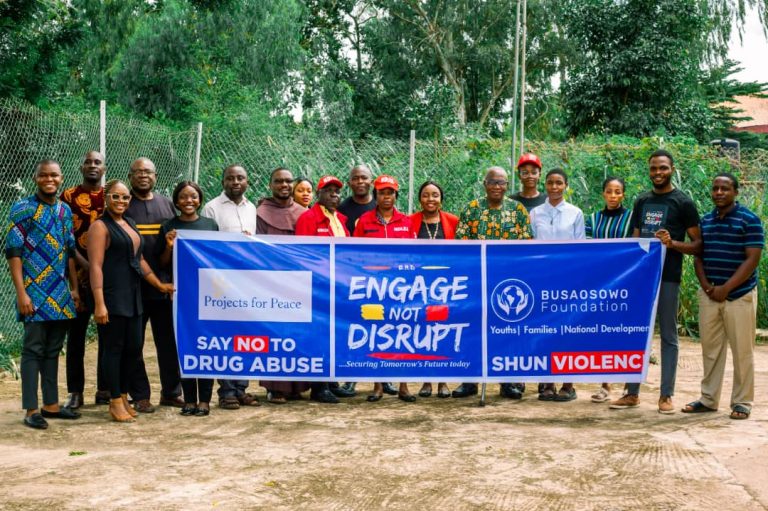News
Foundation blames parents, govt. for rising cases of drug abuse in Enugu

An Enugu based foundation, Busaosowo Foundation (BF), has blamed the rising cases of drug abuses in Enugu State on parental and government neglect of children.
Mr Busaosowo Bisong, the Executive Director of the Foundation, stated this during the “Collaborative Training Session On Enhancing Drug Abuse Prevention Efforts in Enugu State on Wednesday.
Our correspondent reports that BF organised the training with the support from “Projects for Peace” based in New York, USA, as part of the “Engage Not Disrupt project”.
It was attended by the National Drug Law Enforcement Agency (NDLEA) and different NGOs such as RED Foundation, Carmelites Prisoners Interest Organisation, David Folaranmi Foundation and Oganiru Youth Centre.
Others are Heart That Care for Better Health Organisation, Beautifiers House, Daniel Ukwu Leadership Foundation and Society for the Improvement of Rural People.
Presenting a topic titled “Understanding the Drug Abuse Situation in Enugu,” Bisong who hailed from Cross-River, said one of the key factors exacerbating the drug abuse situation in Enugu was unintentional parenting.
He said there was a worrisome knowledge gap between parents and their children regarding drug abuse, adding that many parents in the state lacked sufficient knowledge to engage in effective communication with their children on the issue.
According to him, some parents, when confronted with the topic of drug abuse, become defensive, misunderstanding the conversation as an implication that their children may be experimenting with drugs.
He also pointed out the rising cases of mental health issues and cultism among young people attributed to drug and substance abuse, describing UNODC Drug Use Report of 2018, with Enugu State having 370,000 drug users, as alarming.
Regarding the government’s response to the drug use challenge in the state, Bisong noted that the absence of a clear-cut policy or intervention by the state government to address led to its increase in Enugu.
“Rehabilitation services in the state are nearly non-existent, and the government’s approach appears to be more reactive than proactive.
“There is currently no comprehensive policy in place within secondary schools to prepare students to resist drug abuse, and the guidance.
“The counseling departments in most public schools lack the necessary capacity to effectively address this challenge,” he said.
Bisong said the event aimed to create a platform for civil society organisations working in drug prevention to engage and collectively develop effective strategies to address the challenge of drug abuse in Enugu State through collaborations.
He explained that during the training session, participants had the opportunity to share their field experiences, network, and learn new strategies for implementing interventions.
“By working together with various stakeholders, we are trying to create a society free from the devastating effects of drug abuse and ensure a brighter future for all,” he added.
Ome Eyeuche, the Assistant State Commander, NDLEA, Enugu, emphasised the importance of civil society organisations involved in drug prevention as they understood the risk factors specific to their communities.
“This understanding is crucial in determining the most appropriate interventions and NDLEA expresses openness to collaboration to combat drug use and acknowledged the positive impact of such meaningful conversations on preventive efforts,” he said.
He commended BF for its commitment to facilitating meaningful discussions on drug prevention in the state.
It was also reported that BF is a faith-based non-profit organisation that identifies and responds to the challenges faced by youths, families, and national development.
Its focus areas include drug abuse prevention among young people, education for rural children, disability rights advocacy, and youth empowerment.
The Engage, Not Disrupt Project is aimed to empower young individuals with essential life, social, and vocational skills, equipping them to navigate daily challenges without resorting to drugs or violence.




 Davido's Net Worth & Lifestyle
Davido's Net Worth & Lifestyle 
